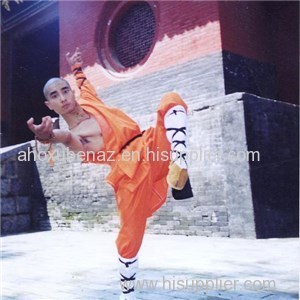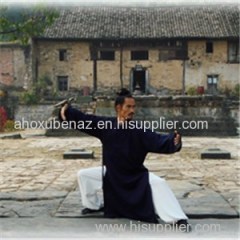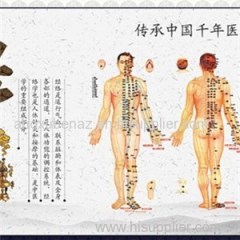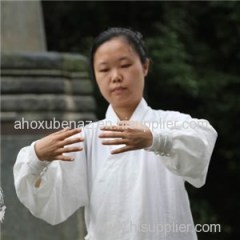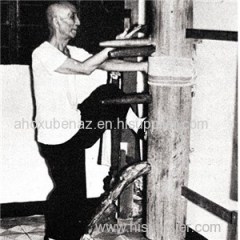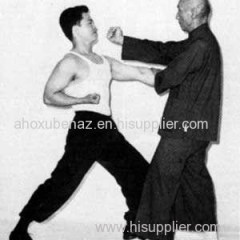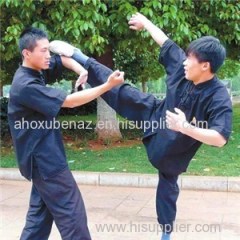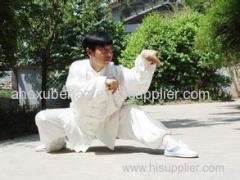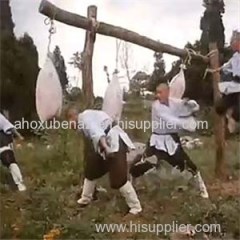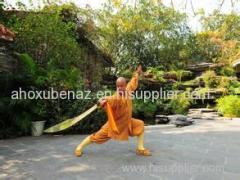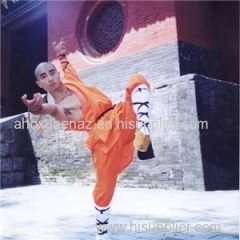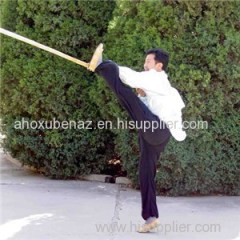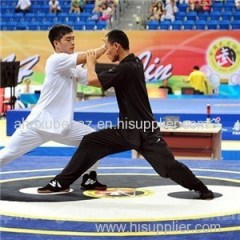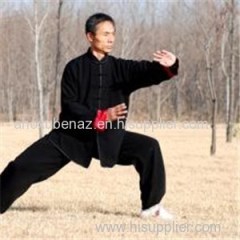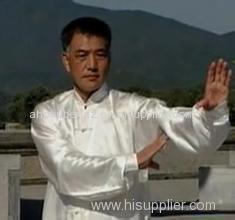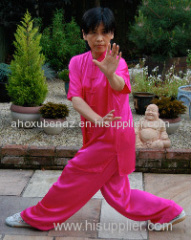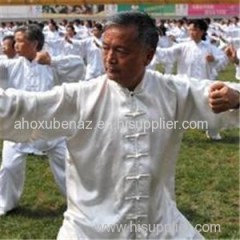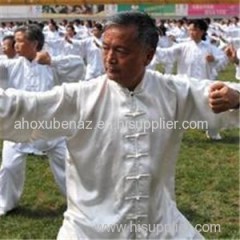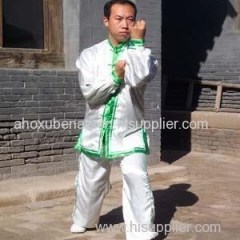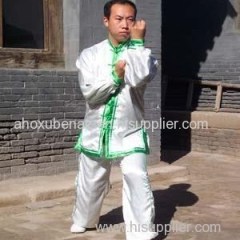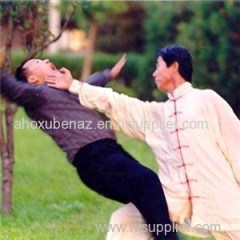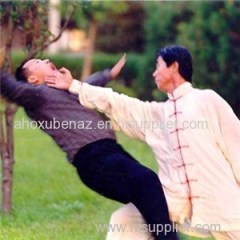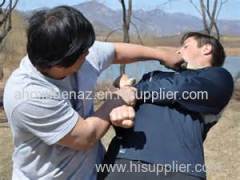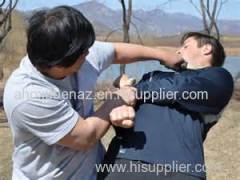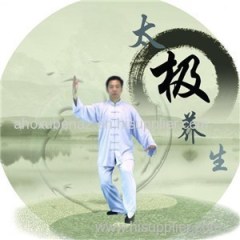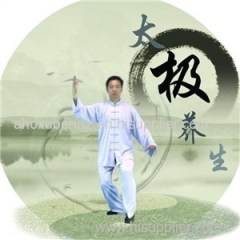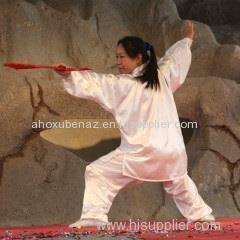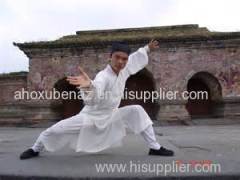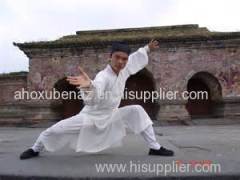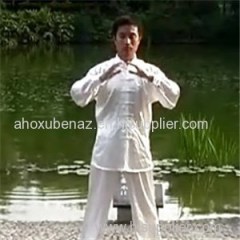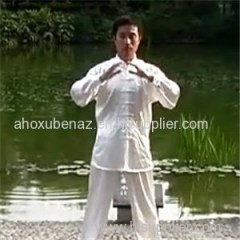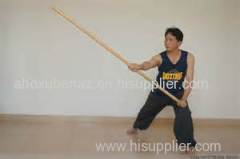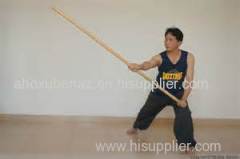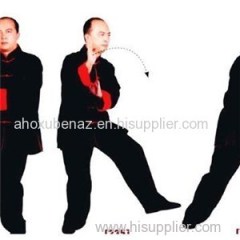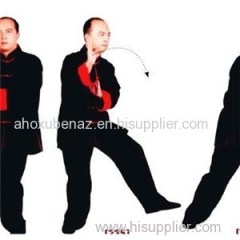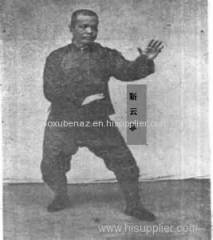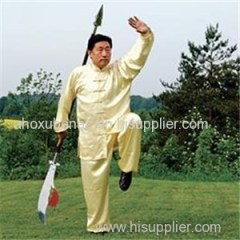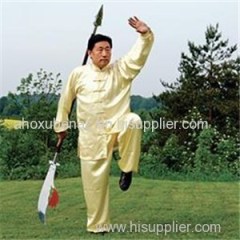|
Kunlun International Martial Arts Academy
|
Shaolin Fist Forms Product Product Product
| Place of Origin: | , China (Mainland) |
|
|
|
| Add to My Favorites | |
| HiSupplier Escrow |
Product Detail
Shaolin Fist Forms,Wudang Kungfu
Like the usual system of Chinese martial arts, Shaolin combat methods are taught via forms (套路; tàolù). Some forms, like Small Hongquan, have just one section, and some, like Big Hongquan, have 3 or maybe more smaller parts, which every part can be considered a form itself. Some forms that are technically closely related are coupled together and are considered of the same style (sub-style is a better choice for the word), like Small and Big Hongquan, which altogether make the Shaolin Hongquan style; or Small and Big Paoquan, which make Shaolin Paoquan, Small and Big Tongbiquan, which make Shaolin Tongbiquan, Qi Xing and Chang Hu Xin Yi Men Quan, etc. There are some styles with one form, like Taizu Changquan, and styles that have been expanded into 5, 10, 13, 18, or even more forms. For example, Luohan 18 hands, which was originally one form, was expanded into 18 forms until the late Ming dynasty; Luohanquan, which originally just had small and big forms, has been expanded into a system of 18 forms called 18 Luohanquan; Shaolin big Hongquan nowadays has 13 forms; etc. Indeed, these styles are not complete or stand-alone, this is just a classification of different forms of Shaolin kung fu based on their technical contents.Shaolin kung fu has more than hundreds of extant styles. There is recorded documentation of more than a thousand extant forms, which makes Shaolin the biggest school of martial art in the world. In the Qing dynasty (1644-1911), Shaolin monks chose 100 of the best styles of Shaolin kung fu. Then they shortlisted the 18 most famous of them. However, every lineage of Shaolin monks have always chosen their own styles. Every style teaches unique methods for fighting (散打; san da) and keeping health via one or a few forms. To learn a complete system, Shaolin monks master a number of styles and weapons. The most famous styles of Shaolin kung fu are:List of known styles[edit]Arhat's 18 hands (罗汉十八手; luóhàn shíbā shǒu): known as the oldest style.Flood style (洪拳; hóngquán): with the small form (小洪拳; xiǎo hóngquán) known as the son of the styles, and the big form (大洪拳; dà hóngquán) known as the mother of the styles,Explosive style (炮拳; pàoquán): known as the king of the styles,Through-the-Arms style (通臂拳; tōngbìquán),7-star & Long Guard the Heart and Mind Gate style (七星 & 长护心意门拳; qī xīng & cháng hù xīn yì mén quán),Plum Blossom style (梅花拳; méihuāquán),Facing&Bright Sun style (朝&昭 阳拳; cháo & zhāo yáng quán),Arhat style (罗汉拳; luóhànquán): known as the most representative style,Vajrapani style (金刚拳; jīn'gāngquán),Emperor's Long-range style (太祖长拳; tàizǔ chángquán): known as the most graceful style,Guard the Home, aka Special, style (看家拳; kānjiāquán),Chain Hands and Short-range combat (连手短打; lián shǒu duǎn dǎ),5 Combinations style (五合拳; wǔhéquán),6-Match style (六合拳; liùhéquán),Soft style (柔拳; róuquán),Mind (心意拳; xīnyìquán) aka Confusing Path style (迷踪拳; mízōngquán),Imitative styles (象形拳; xiàngxíngquán) (including Dragon, Tiger, Leopard, Eagle, Monkey, Mantis, etc.),Drunken style (醉拳; zuìquán),and many other styles, such as the southen shaolin styles, that traces their roots back to the southern shaolin temple in the fukien province, such asHung Ga and Wing chun.

